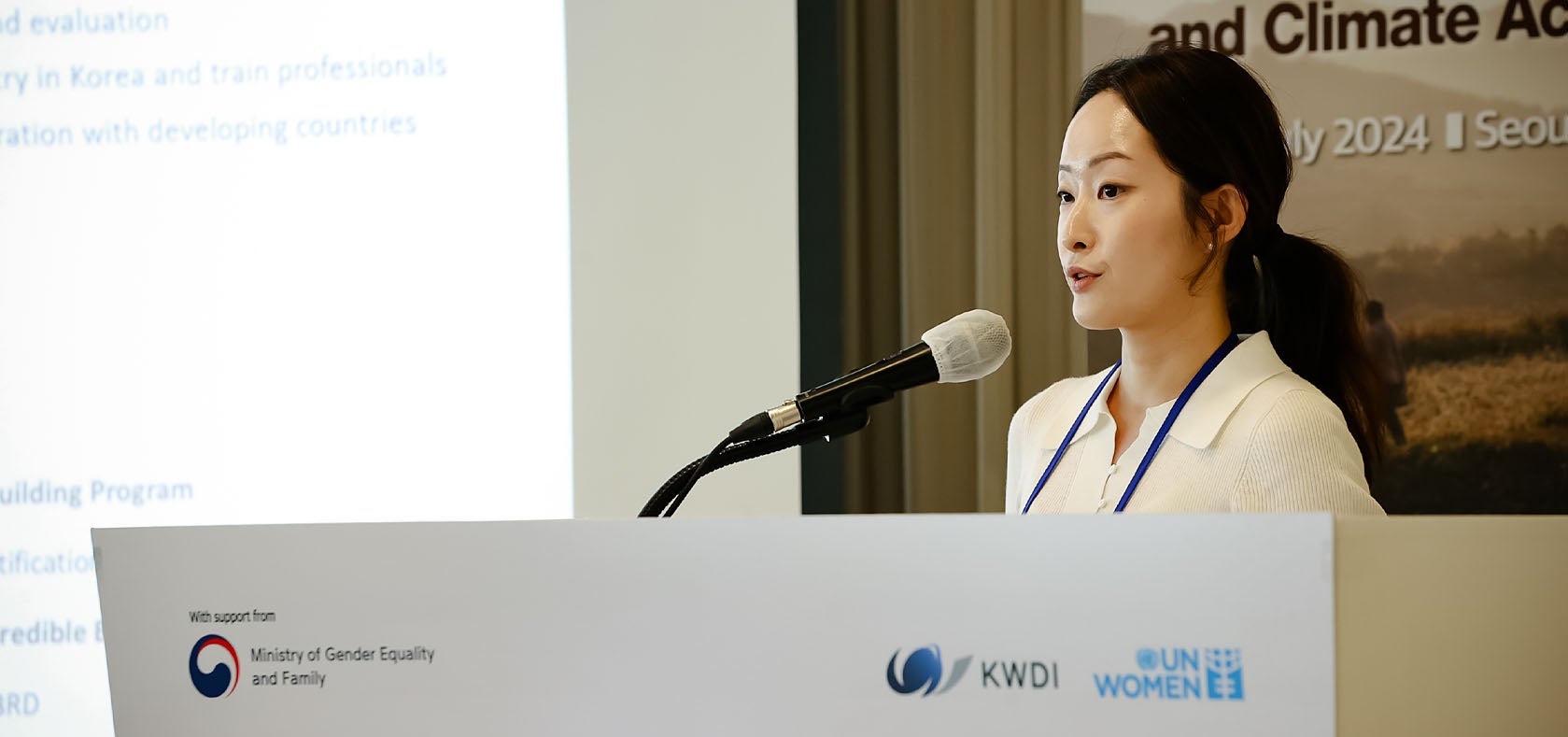From where I stand "There are certain prerequisites that must be met for a gender-responsive climate action"
Ya Ya Kim is a Research Fellow for the Korea Institute for Development Strategy, a global leading consultancy specializing in official development assistance (ODA). With more than a decade of experience in international development, she was invited as a guest speaker at the event “Learning Workshop for Mainstreaming Gender in International Development Cooperation with an Emphasis on Gender and Climate Actions,” held by UN Women Centre of Excellence - Korean Women’s Development Institute. The workshop aimed to equip international development practitioners with gender-responsive strategies for climate action, empowering them to implement these approaches effectively. There, she spoke on mainstreaming gender in climate change ODA, addressing both challenges and future tasks.
Date:


As a climate change practitioner working on development projects in developing countries, I often face the challenge of addressing gender disparities in the context of climate change. Mainstreaming gender in these projects has been consistently difficult, leaving me questioning, "How much progress have we made? How far have we come? Has there been any meaningful contribution?" Sadly, the answers often feel uncertain.
There are certain prerequisites that must be met for a gender-responsive climate action. Leadership needs to strengthen its commitment and awareness, while project implementers, with their varied roles and perspectives, must deepen their understanding. Building consensus on the importance of gender mainstreaming is crucial. Providing more opportunities for training, such as step-by-step educational programmes tailored to different competency levels, and offering thorough guidance on relevant guidelines and protocols would be highly beneficial.
In addition, more detailed, sector-specific gender equality strategies and guidelines are needed. Greater efforts should also be made to promote and educate stakeholders on gender equality and mainstreaming. To encourage participation, it is vital to integrate gender considerations meaningfully and establish institutional mechanisms that can enforce these actions.
Lastly, there is a shortage of gender experts involved in these efforts. Collaboration between gender specialists and development cooperation experts is essential. We need gender experts who understand the nuances of development cooperation in the context of developing countries, working together with development professionals who are well-versed in gender perspectives to jointly tackle these challenges.
Despite the obstacles, I have witnessed small but meaningful changes in the field. For example, in a small town on an Indonesian island, a husband proudly acknowledged his wife's selection as one of the workers responsible for the daily operation and maintenance of the village’s solar photovoltaic station. This example has gradually increased the community’s awareness of women taking on socially significant roles. While much remains to be done, these small steps are making a difference—they mark the beginning of change.
Gender mainstreaming in climate change is still in its early stages, with much work ahead. Rather than focusing solely on what has or hasn't been accomplished, the key is that actions are under way. Now, it's important to consider the next steps: what more can be done and how to implement it more effectively. Continuous reflection, improvement, and concrete action are essential for progress.
Ya Ya is an international development specialist who has worked across Asia, North America, Latin America, the Caribbean, and Europe, focusing on environment, climate change, energy, waste management, and green growth, covering Sustainable Development Goals (SDGs) 5, 13 and beyond.